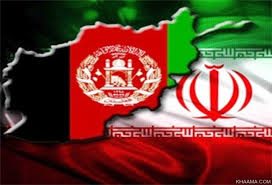Radiofarda – Afghan politicians’ immediate reaction to Qassem Soleimani’s killing showed a mixture of anger and grief. Several called him a martyr. However, they stressed that his killing should not become a tool of intensifying proxy wars inside Afghanistan.
Leading the chorus, former president Hamid Karzai condemned the killing and said such a move would further destabilize the region. Karzai’s stern reaction to Soliemani’s killing is rooted in his enmity with the United States that has recently soared.
Even though Karzai came to power with help from the United States in 2001 after the fall of the Taliban, his relationship with Washington deteriorated over the course of his 14-year reign. Some Afghan social media users criticized Karzai for backing Iran. They reminded him of his 2010 press conference in which he infamously admitted receiving bags of money from Iran. He termed the reported sum of $6 million as transparent aid to his office.

I strongly condemn the US drone strike in Baghdad that assassinated Iran’s Quds force commander General Qasim Soleimani. This action brazenly violates all international norms and threatens to further destabilise the region. I offer my condolences to Shaheed Soleimani’s family…1,8565:41 PM – Jan 3, 2020Twitter Ads info and privacy748 people are talking about this
The United States confirmed killing the powerful commander of Iran’s elite Qods (Quds) Force in the late hours of January 2 in an air strike near Baghdad International Airport.
The same day, Afghan Chief Executive Abdullah Abdullah expressed his condolences to Iran. In a statement, he acknowledged Soliemani’s cooperation with Afghans during decades of war in Afghanistan. Abdullah’s statement was not as harsh as his political party’s – Jammiat Islami. The lengthy press release on January 3 named Soleimani as a martyr and said the news of his death is received with deep grief and anguish.
Ahamd Zia Masoud, another leader of former Northern Alliance and brother of former legendry Mujahidden commander Ahmad Shah Masoud voiced his support for Iran. The former Vice President said on his Facebook post that Soleimani was an irreplaceable hero.
Jammiat Islami led by former Afghan foreign minister, Salahuddin Rabbani was part of Northern Alliance which fought the Taliban after the September 11 attacks on the United States. Northern Alliance had close relations with Iran. Unconfirmed and undated pictures have emerged on social media that purportedly show Qassem Soleimani with some of the Afghan Mujahiddeen leaders. Most of the former Northern Alliance commanders are ethnic Tajiks who have close relations with Iranians based on lingual affiliations. In Afghanistan, Tajiks speak Dari, a variety of Persian language.SEE ALSO:World Reactions To Soleimani Killing Either Urge Restraint Or Call For Revenge
Soleimani was the architect of Iran’s proxy wars in the Middle East. One creation of his, the Fatemiyoun Division is of particular concern in Afghanistan. With an estimated number between 10,000 to 20,000 fighters, the Fatemiyoun Division mainly consists of members of Afghan Shi’ite Hazara minority. The militia fought alongside Qods forces in Syria and Iraq and many have raised concerns that Iran can use these fighters in Afghanistan in case of a proxy conflict.
In November 2017, Deputy Afghan Chief Executive and a Shia Hazara politician Mohammad Mohaqiq confirmed Iran’s recruitment of these Afghan fighters. Speaking in an event in Tehran, he thanked Soleimani. “I thank all the warriors who cooperated in these wars from Iraq, Syria, Afghanistan, Pakistan, and other parts of the world,” Mohaqiq said. Head of Hizbi Wahdat party, Mohaqiq in a statement on Friday termed Soliemani’s death an irreplaceable loss. On the other hand, another Shia Hazara leader and Afghanistan’s Second Vice President Sarwar Danish expressed his concern over Soleimani’s killing and asked for “calm over the matter” from all sides.
“We assure all countries, far and near, especially Afghanistan’s neighbors, that Afghanistan will not be used against the interests of any country,” he repeated President Ashraf Ghani’s statement that was issued after a telephone conversation with the U.S. Secretary of State Mike Pompeo on January 3.
Perhaps a more unexpected reaction to Soleimani’s killing came from former National Security Advisor, Mohammad Hanif Atmar. He does not have much in common with former Mujahiddeen leaders to echo the same sentiments. Atmar said in a statement on January 3 that Soleimani was “martyred” and wished him a special place in heaven. A former Afghan intelligence officer during Soviet backed communist regime in the country, Haneef Atmar has fought against Afghan Mujahiddeen who were backed by Pakistan and Iran. Upon contact for this article, one of his aids who did not want to be named as he was not authorized to speak to the media said that Atmar knows the United States is withdrawing its forces from Afghanistan. “It’s our neighbors like Iran and Pakistan who would stay. Atmar wants to keep them happy,” he said.
Former Afghan Intelligence Chief and a contender in last September presidential election, Rahmatullah Nabeel took a different stance. “Soleimani was an asset for Iran but a threat to the region,” he tweeted.
- Bashir Ahmad GwakhBashir Ahmad Gwakh is a Fulbright Scholar. As a journalist, he covers Afghanistan and Pakistan for RFE/RL’s Radio Mashaal.
 Shabtabnews In this dark night, I have lost my way – Arise from a corner, oh you the star of guidance.
Shabtabnews In this dark night, I have lost my way – Arise from a corner, oh you the star of guidance.



